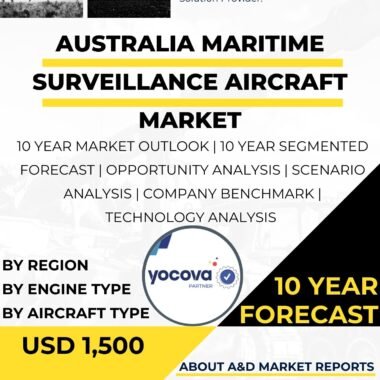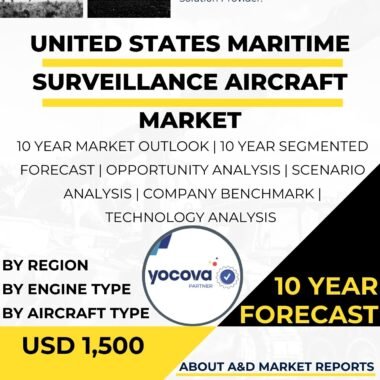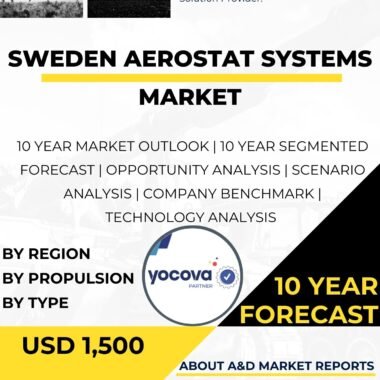Description
Belgium Aerostat Systems Market
The Belgium aerostat systems market is an emerging sector within the country’s defense industry. Aerostat systems, also known as tethered balloons or blimps, are unmanned, lighter-than-air platforms that provide persistent aerial surveillance and communication capabilities. These systems have gained attention due to their ability to operate at high altitudes for extended periods, offering a cost-effective alternative to traditional airborne platforms such as manned aircraft or satellites.
Belgium recognizes the importance of advanced surveillance and communication capabilities for its defense and security needs. The integration of aerostat systems in the country’s defense infrastructure presents several advantages. Firstly, aerostats provide long-endurance surveillance capabilities, allowing for continuous monitoring of large areas and borders. This is particularly relevant in Belgium’s context, as it shares borders with several neighboring countries and plays a role in European defense cooperation.
Aerostat systems can carry a variety of sensors and payloads, including high-resolution cameras, radar systems, and communication equipment. These sensors enable real-time surveillance, target acquisition, and situational awareness, supporting military operations, border control, and homeland security. The persistent presence of aerostats enhances the detection and tracking of threats, providing early warning and response capabilities.
Furthermore, aerostat systems offer significant cost advantages compared to traditional airborne platforms. They are relatively inexpensive to acquire and operate, making them an attractive option for defense budgets with limited resources. The lower operating costs and reduced logistical footprint of aerostat systems make them a viable choice for long-term surveillance and communication requirements.
The Belgium aerostat systems market is driven by a combination of domestic capabilities and collaborations with international partners. Belgium has a strong defense industry, which includes companies with expertise in aerospace, surveillance systems, and tethered balloon technology. These companies, along with research institutions and universities, contribute to the development and integration of aerostat systems within the country.
Collaborations and partnerships with international companies also play a significant role in the development of the Belgium aerostat systems market. These collaborations allow for the transfer of technology, sharing of best practices, and access to a broader range of products and capabilities. Belgium’s participation in NATO and other defense cooperation initiatives further enhances opportunities for collaboration and integration of aerostat systems.
The potential applications of aerostat systems in Belgium extend beyond defense and security. They can be utilized for civil purposes such as border surveillance, maritime domain awareness, disaster management, and environmental monitoring. This versatility expands the market opportunities for aerostat system providers and promotes dual-use technologies.
However, challenges exist in the Belgium aerostat systems market. These include ensuring the integration of aerostats within existing defense infrastructure and airspace regulations, addressing security concerns related to the use of advanced sensors and data transmission, and managing the logistics and maintenance requirements of the systems.
In conclusion, the Belgium aerostat systems market is a growing sector driven by the country’s defense and security needs. The integration of aerostat systems provides long-endurance surveillance and communication capabilities, offering a cost-effective solution for persistent aerial coverage. Domestic capabilities, collaborations with international partners, and the versatility of aerostat systems contribute to the market’s growth and potential applications in both defense and civil sectors. As Belgium continues to invest in its defense modernization efforts, the demand for aerostat systems is expected to increase, fostering innovation, collaboration, and economic growth within the sector.




